Second Wind’s Fate Could Impact Enfield’s Funding Future
The Award Meeting’s Expanded Story
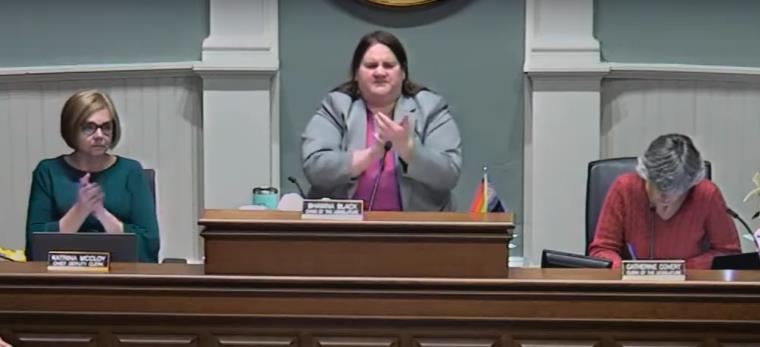
by Robert Lynch, December 23, 2022
Tompkins County’s legislators Tuesday night approved more than $6 Million to spend on 53 applicants’ pet projects under Tompkins County’s Community Recovery Fund. They then applauded themselves. Newfield’s Randy Brown did not clap. Instead, he looked down at his papers. Randy Brown had voted no. Randy Brown was disappointed. And Randy Brown was angry. His constituents had just been left in the dust.
“Enfield is completely ignored by the County; Newfield, completely ignored by the County,” Brown said. In terms of government funding, “Nothing happens there.”
Brown told colleagues that in Enfield, “They’re pinching pennies every day; the poorest district in the county. They’re buying used equipment ‘cause that’s all they can afford. And yet nothing got funded. In recognition of all the problems in the county, you didn’t even think about Enfield and Newfield in my mind.”
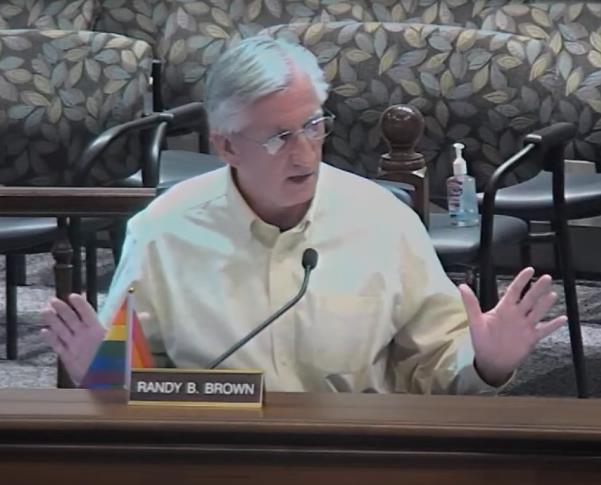
For all the millions spent elsewhere, Enfield and its community servants that night hadn’t received a single penny. And most likely, they won’t. Yet one or two glimmers of hope remain. That is what this story is about. You won’t read about it elsewhere.
Bringing to fruition a year-long promise and culminating a three-month process of submission and review, the County Legislature December 20th endorsed the funding recommendations of a six-person Advisory Committee of its members. The six committee members—who because of a legislative vacancy held effective veto power over the majority—showed amazing resilience for holding together to block attempted amendments. And those who sat beside them showed little initiative to buck momentum.
A dozen or so proposed amendments that would have altered the committee’s choices were, one by one, beaten back, a couple of them without even earning a seconding vote. In first one, and then a second round of its earlier review, the committee had chosen to shut out the Town of Enfield, its Food Pantry, its Fire Company, and its Community Council from the worthy requests they’d individually submitted. And Brown’s home town of Newfield hadn’t fared much better.
“I respect what the committee did, and this is definitely water that’s never been paddled through before,” Brown told legislators moments before he cast his lone dissenting vote. “But I feel that the committee didn’t even understand the transformative processes that Newfield-Enfield attempted to do.”
First, Brown slammed the committee for snubbing during its initial round the Quarter-Million Dollar joint collaborative between Newfield’s Town, its school, and its library to upgrade recreation facilities. Then he turned to Enfield:
“Enfield is feeling the exact same way,” Brown said. “They’re on their own.”
From the flip side of the funding debate, Recovery Fund Committee Chair Dan Klein offered up his own memorable quote.
“I think this may be one of those instances where since no one seems happy that means we did a good job,” Klein stated, the Danby Democrat taking pride in his committee’s hard work, but assuredly relieved its job had now ended.
Sorry, Dan, it may not have.
A “Tale of Two Tompkins Counties” became the take-away any careful observer could have drawn from the evening’s dueling narratives. And freshman Republican legislator Brown made sure you’d remember his own narrative his way.
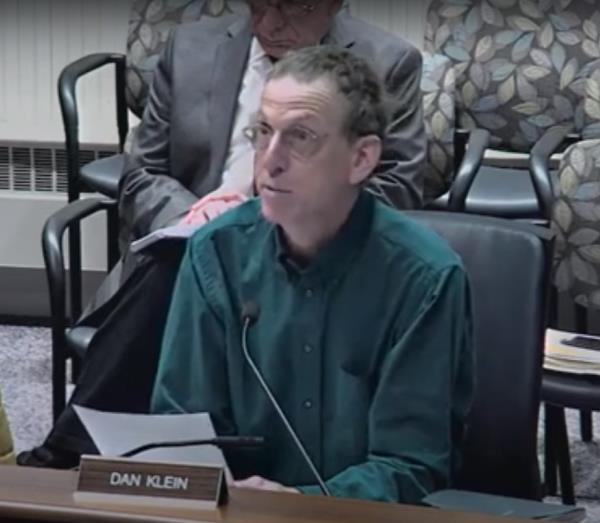
Cayuga Medical Center (CMC) had won the biggest prize of the night; $1.5 Million in Recovery funds to establish a “Crisis Stabilization Center” for mental health treatment inside the Shops at Ithaca Mall. The committee’s other most controversial handout, $510,000 to finance Second Wind Cottages’ building of 25 campsites for the homeless in Newfield, hadn’t yet ripened for a vote. It couldn’t be included in the evening’s funding package. But because the Legislature also rejected Brown’s efforts to explicitly defund Second Wind, you can expect body shop owner Carmen Guidi’s homeless-housing brainchild to get the money it wants, providing, of course, that procedural hurdles get tossed aside first.
Be advised, they might not.
Brown had led the fight against both Cayuga Medical and Second Wind. But while Cayuga Medical’s funding is now a done deal, Second Wind’s is not. Its half-Million dollar appropriation couldn’t be decided Tuesday because a so-called “SEQR” environmental review remains unfinished. And a SEQR review, if done right, could rope in a lot of ancillary issues, not the least of which is Newfield community and Town Board opposition to the project.
Second Wind‘s proposal would build 25 new cabins to complement the 18 slightly-larger structures that already encircle Guidi Collision’s shop off Newfield’s Route 13 north of the hamlet. The campsites would admit “low-barrier” unhoused men. And what worries community leaders most is that the new arrivals would be plunked down in a place that lacks both the emergency resources to protect those vulnerable residents, and the police presence to, if needed, protect community residents from them.
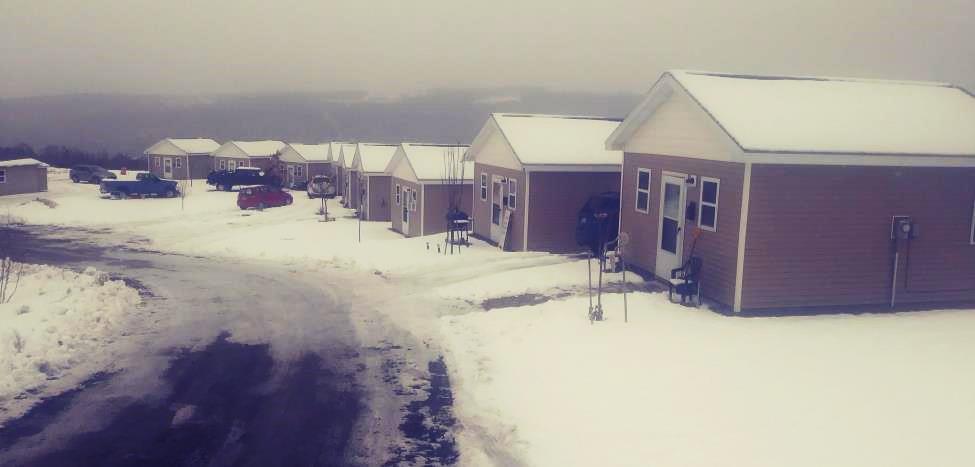
“Would there be drugs? Yes. Would there be alcoholism? Yes,” Brown reported Second Wind’s leadership as having acknowledged when he’d met with them. The campsite’s “low barrier” admission standards would constitute a change from the present, Brown said. What’s more, some worry Second Wind could become a dumping ground for convicted sex offenders as well as for other supposed undesirables now subsisting in Ithaca’s homeless encampment better known as “The Jungle.”
Randy Brown advanced a Resolution on meeting night that would have removed the Second Wind grant from consideration for Community Recovery funds. He would have spread the money to other applicants. Brown’s measure lost five votes to eight. If the eight objectors continue to hold tight, they’d make a majority in favor of Second Wind should it survive SEQR scrutiny and head to a vote.
“This is not healthy for Newfield,” Brown warned the Legislature of Second Wind. He reported that of 43 Newfield constituents he’d talked to about the project, only two had said they support it.
Debate over Brown’s defunding Resolution engulfed some 40 minutes of a four-and-a-half-hour marathon meeting. And during the debate, the legislator warned that what’s normally a perfunctory SEQR review could instead bring Newfield’s defenders to their battle stations.
“They’ll get an attorney in there. They’re going to fight this,” Brown warned. “I’m telling you right now, they’re not going to go for this. They’re not going to roll over.”
The Newfield legislator worried aloud that some County Planning staff might attempt to paper-over community objections if they were to usurp the SEQR process from the Town. Brown later apologized after Legislature Chair Shawna Black cautioned him not to criticize those on the County’s payroll.
But, at its core, Brown saw the Second Wind initiative as filling a void left by others’ irresponsibility; the Guidi group’s seeking to “grab” an opportunity to remedy a homelessness problem whose solution the City of Ithaca is all-too-willing to abdicate and to offload.
“The City has done nothing,” Brown told legislators. “They’ve just let it sit. And here’s the Legislature going, ‘Oh boy, we’re going to fix the problem. Let’s send it to Newfield!’”
“As a matter of comity, I do not want to be funding a project or enabling a project that the host municipality is so much opposed to,” Budget Chair Deborah Dawson, an Advisory Committee member, said in support of Brown’s resolution. Back on December 8th, the Newfield Town Board had unanimously voted to oppose Second Wind.
Yet, Dryden’s Greg Mezey came to the fragile encampment’s defense.
“But these are people,” Mezey spoke of those who would newly-populate Second Wind. “And these are opportunities for people to have shelter and some structure and some programming. And maybe this will do them a world of good.”
“Maybe taking a few people out of downtown Ithaca and putting them in Newfield, they’ll get to experience what you love so much about living in Newfield,” Mezey told Brown. “We owe it to 25 residents of Tompkins County to try to give them a better quality of life,” Mezey said. “It’s unfortunate that Newfield doesn’t want to be part of that solution.”
“I take offense at Newfield not wanting to be part of the solution,” Brown rebutted, observing that his town has already welcomed Guidi’s existing 18 cottages and would be willing to do more were the same kind of housing to be built.
“I don’t think putting this in Newfield is the best use of our public money,” Democrat Rich John added to the debate.
“If I were to pick a spot, that just wouldn’t be the site I’d pick,” Lansing Republican Mike Sigler chimed in. “It’s close to nothing.” Brown had reported the encampment even lacks a bus stop on its own side of the highway.
The site works only “to further isolate people who are already isolated,” Sigler said.
Yet Legislature Chair Shawna Black took Greg Mezey’s side.
“It makes me sad hearing this City versus County scenario,” Black said. She called Second Wind “one of many solutions,” and a “multi-pronged way for us to address homelessness.” She voted against Brown’s resolution. And she would likely support Second Wind for funding should it eventually come to a vote.
Whenever—and by whomever—the Second Wind environmental study gets completed, both the environmental report and Second Wind’s funding would then head back to the County Legislature for a pivotal vote. But should Second Wind falter, either on the legislative floor or before it reaches there, the $510,000 saved could be parceled out to others, namely to the many currently denied funds. Of course, no guarantee exists that Enfield applicants would claim any of those moneys. But they could.
Of the Enfield agencies that filed for Recovery Fund support, but didn’t make the cut, the Enfield Community Council (ECC) scored highest. And if Second Wind were to drop out, ECC would likely be the first of Enfield’s aspirants to drop in. But its inclusion stands far from certain. Positioned above ECC in the Advisory Committee’s complex prioritization spreadsheet sits Khuba International, a cooperative farming effort geared toward people of color. Khuba asked for One Million Dollars. As many as five people spoke in Khuba’s favor at the start of Tuesday’s meeting.
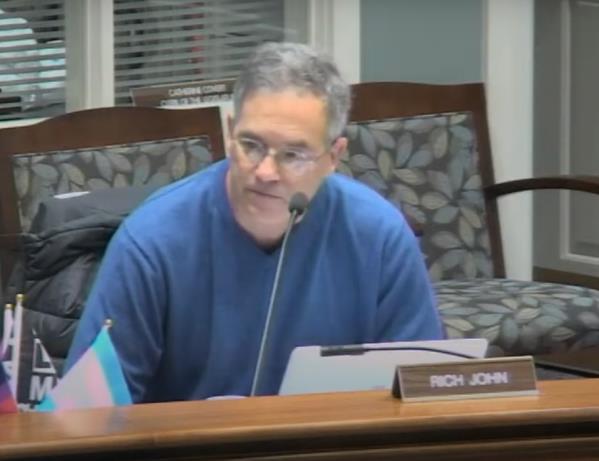
There’s another big-ticket applicant, Unity House, standing in front of ECC in the funding queue. Of course, nothing requires the Legislature to follow the rank-order laid down by the Advisory Committee and its highly-paid consultant. Perhaps what may become more significant is how much Randy Brown can bring shame to his colleagues about how Enfield has been slighted and whether anyone’s face might be saved by throwing the county’s poorest town a crumb or two.
There’s yet a second funding route for Enfield applicants. But it’s a path far more precarious.
When the Community Recovery Fund was first conceived in mid-2021, the current funding pot, originally a clean $7 Million, was thought to have been only the first of three. Community Recovery Funds, directly or indirectly—plans changed over time—were considered a pass-through from the federally-financed American Rescue Plan, ARPA. Tompkins County got $19.8 Million in ARPA money. At a September 2021 meeting, a prior committee had proposed spending as much as $15 Million in a multi-year, multi-round give-away, with $5 Million, and then $3 Million, spent successively in years two and three.
But budget-wary legislators balked. The more ambitious giveaway was never suggested again. Instead, the ARPA money not set aside in this year’s Recovery Fund round was diverted toward various operational expenses, up to three quarters of it for capital projects. And County Administrator Lisa Holmes told this writer after Tuesday’s meeting that she doubts it could be clawed back out.
Back last year, Tompkins County had actually intended to use its massive fund balance, and not its ARPA gift, to finance the Recovery Fund. But more litigious minds later prevailed. They cast their eyes to New York’s strict “anti-gifting” rules and urged use of ARPA, and not fund balance, to underwrite what legislators spent Tuesday night.
Nonetheless, some suggested Tuesday that tapping the fund balance could still be justified for agency funding on a case-by-case base. And if it were to pass legal muster, County coffers might be reopened for Enfield applicants and others currently left out of luck by Tuesday’s vote.
“Do we want to add something more to fund some of these issues?” Rich John asked after all amendments had been dispatched and the Recovery Fund package had headed towards its vote. John suggested considering the supplemental appropriation maybe as soon as February. Others cautioned they’d best wait until they craft the 2024 budget next fall.
“I hope we can get a clear understanding of the fund balance,” Brown said, opening the door to added funding. “I want to understand what projects could be funded with the fund balance and which could not. It would be helpful information.”
It’s a question to be answered—and a challenge to be wrestled with—later.
****
This story cannot conclude without addressing Cayuga Medical Center’s $1.5 Million request, the biggest Recovery Fund give-away of them all. Randy Brown, who said he likes CMC’s Crisis Stabilization Center concept, yet argues the hospital has sufficient money banked to pay for it, attempted to pull CMC’s request out of the funding package to accommodate more threadbare applicants. Brown’s attempt failed. Only he voted for CMC’s removal.
“This is a new and monumental task. I think it’s worth it,” Cayuga Medical’s CEO, Martin Stallone, the long meeting’s first speaker, told legislators. But the hospital chief added, “This is not something where health systems given the climate of health care today can do in and of themselves.”
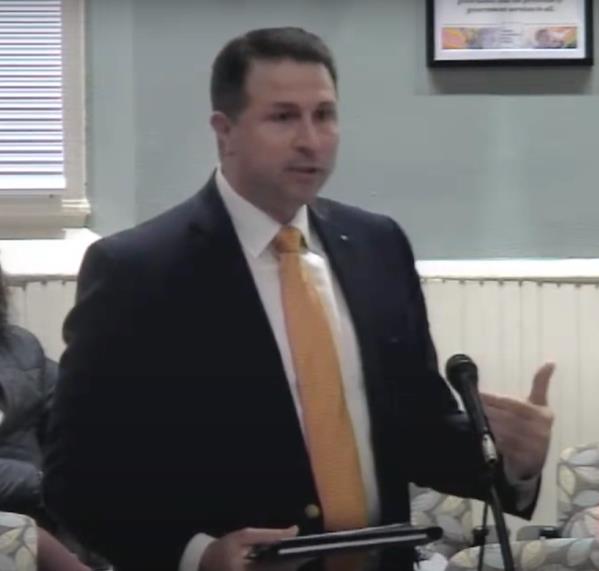
CMC had played hardball with Tompkins County, insisting that unless the County fully funded its $1.5 Million request, the mental health treatment facility would simply not happen.
“As an institution we have extended ourselves to our brink, the brink of what would responsibly be our outlay of capital, and beyond that would be unwise,” Stallone said. The CEO claimed that the hospital this year, operationally, has lost $10-20 Million. And he described the organization’s investments, that together top $100 Million, as “frankly, unstable.”
“This is transformative,” Rich John observed of the Crisis Stabilization Center proposal. “This is what this government program was really set up to do.”
John added, “This is a pretty good bargain. It’s a big ticket. But if you think about the benefits it will provide for years and years to come, I think it’s really worth it.”
Nonetheless some, like legislator Brown, maintained that forcing CMC to self-finance would “open up money for a lot of other things,” Enfield and Newfield projects included.
During the CMC debate, Greg Mezey briefly floated a compromise that would have cut the hospital’s Recovery Fund payout in half, financing its remaining needs directly from the County’s fund balances. Mezey, like Brown, recognized that shaving CMC’s request, but funding its remainder through the County treasury, would free up three-quarter Million for unfunded applicants.
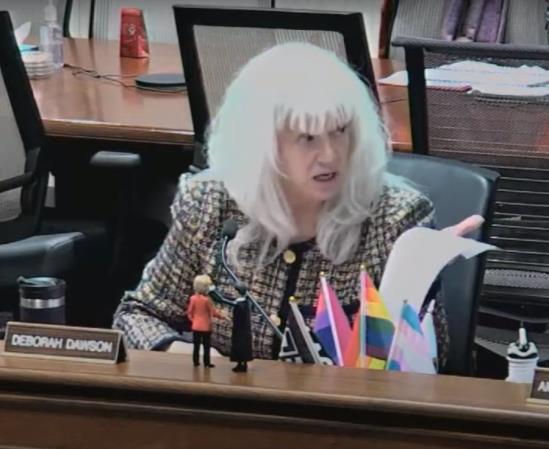
Yet Mezey’s novel idea also resurrected those pesky rules about public-to-private gifting. It would also have expanded the night’s discussion far beyond where many on the Legislature had intended to go.
“This amendment is not germane and should not be allowed,” legislator Mike Lane told colleagues.
“That makes no flippin’ sense,” Deborah Dawson put more bluntly. Mezey quietly withdrew his suggestion.
To be clear, no applicant the Advisory Committee during its many meetings in recent weeks had recommended against actually got any money Tuesday. And that includes anyone from Enfield. Nearly two dozen citizens—this Councilperson included—addressed the Legislature that night, each in vain. Only the funding fate of Second Wind Cottages remains undecided right now. Its environmental review could prompt a fight. Moreover, that fight could drag on for months.
Just like when parceling out grandma’s china after her will has been read can ignite a family feud, the award of Tompkins County’s Community Recovery Fund has left many community advocates smarting. And that includes legislator Randy Brown. And that also includes me.
“I know your committee tried to do the right thing,” I told the Legislature Tuesday night, as I spoke my three minutes on behalf of Enfield’s interests, most principally its Food Pantry. But as to the review process, I concluded, “Numbers mattered more than people. Too many calculators and spreadsheets; too few hugs and tears.”
Well, maybe better next time, if there is a next time. Second Wind may tell us so.
###

